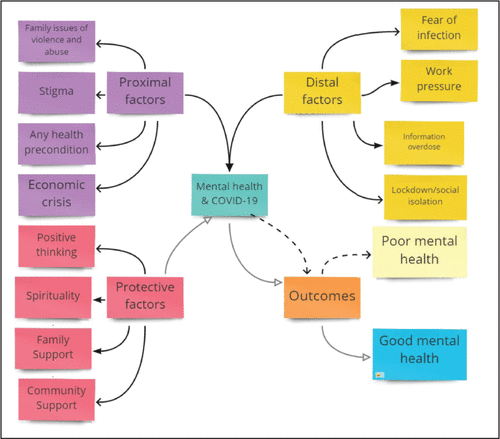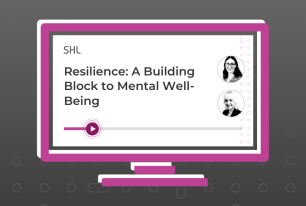COVID-19 in India: 10 Things You Can Implement Now to Help Your Workplace Help You
COVID-19 in India has brought a lasting impact on mental health. If you work and live there, what can you do to maintain your mental health at work?
Share
In his latest comic gig, world famous Indian comedian Vir Das paid tribute to the departed, saying that at least they did not go alone, they had company of thousands and lakhs of others. Same thing applies to those surviving the dead, we are not mourning alone, especially not in India.
We are a 1.38 billion people-strong nation and our huge families, frequent festivals and proximity to kith and kin had always worked for our advantage, giving us opportunities for strengthening our bonds. COVID-19 has broken the fabric of our multi-cultural nation, turning our strengths to weaknesses.
With every second, an individual mourns the loss of a loved one or is hunting for the nearest ICU bed and arranging oxygen concentrators. We can no longer separate the personal from the professional nor pretend that for the corporates, COVID-19 is only an issue pertaining to business continuity while the entire staff works from home. As Krish Shankar, Group Head, Human Resource at Infosys recently remarked, “The role of the office is going to change. It’s not going to be a place that you go into work, but it needs to be a place where you come to really connect with people.”
However, the connections that we build at work in the now, would really define and reshape the interpersonal equations at work and the output thereafter.
In an atmosphere of constant panic and when a not-bad day is when you did not hear of someone’s loss, it is the mental health of the community that becomes the cause of concern. The following Figure 2 provides a conceptual framework of the causes and its interrelationships of outcomes of mental health of individuals in the context of a pandemic. Risks to mental health are due to the interaction of two types of factors: proximal and distal. Proximal factors are direct implications of the disease the disease and the distal causes act indirectly (via intermediary causes).

Figure 2. Conceptual Framework of the Causal and Protective Factors Affecting Mental Health
With every second, an individual mourns the loss of a loved one or is hunting for the nearest ICU bed and arranging oxygen concentrators.
When everyone is dealing with different factors of the COVID situation, here are a few ways your workplace can provide you the much-needed support and a sense of belonging or even accomplishment:
- Schedule an honest catch-up call with colleagues: Get to know how they are coping with the situation. Share what you are doing, take inputs and even ask for help for work or otherwise.
- Know that this does not have to be your constant mental state: It might seem that being in a constant state of apprehension (or uncertainty) is the default state of everyone, but there is nothing wrong or selfish in trying to find calm in the chaos for yourself. Make a list of activities to choose from during work breaks: Breathing exercises, stretching, blocking no-screen time on calendar, journaling, or walking.
- Focus on learning and sharing new skills: Distraction of scrolling is not always helpful, it can either dampen your spirits or motivate you depending on what you end up seeing on your screen. You could try swapping a few minutes or an hour of your screen time for a new skill. If there is a skill that you could share with your co-workers, schedule learning sessions with them. It will help everyone grow!
- Initiate and finish at least one new task within the same day or week: This gives a sense of accomplishment, ownership and even a sense of control. Take a small, achievable task. Remember, the goal is to finish it.
- Maintain a work-journal: It can be hard to keep track of the good within the bad. Maintaining a journal or a spreadsheet of what you do every week can tremendously help you see the progress of your projects.
- Participate in different workplace activities: Whether it is a small survey, training session or a mentorship program or a book club, make use of all the benefits your workplace offers. You could also initiate a new one!
- Help and appreciate colleagues: We are never not learning from people! Find time to say a good word about someone whom you see doing well despite the challenges or executing work in a unique way that inspires you. Help whenever you can! According to long-term research, altruists at a workplace are more likely to be committed to their work and more likely to be satisfied with their life.
- The value of positive affirmations: You do not have to start with an ambitious affirmation that all is okay with the. world, when it isn’t. Start by writing down small, short-term and emotionally achievable affirmations that don’t weigh you down, for e.g. ‘Today is a better day than yesterday.’, ‘I am going to focus on work with full attention.’ or ‘I will only focus on that which is in my control.’
- Speak up and take a break: There is nothing absurd with a sick- (mental health)-leave. Sharing your thoughts with your manager, let him/her know how you are doing. Take breaks whenever required. Remember, the threat to mental health is as high as that of physical health.
- Tell your family about your work relationships: Let your loved ones know that they are not alone and how your colleagues (and their communities) are doing and coping with the chaos in the world. You are not isolated from your family. Share nuggets of your work life with them to keep them involved and have the same perspective as you do.
We might not be able to control what is happening in the country. No one deserves to be struggling for their lives or the lives of their loved ones. It is time to pull each other up and take baby steps towards sanity. We spend 40+ hours of our week at our workplace and that is the best place to start.
Read more on how international professionals can help their Indian counterparts.









